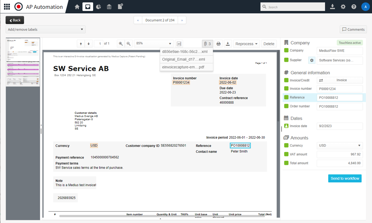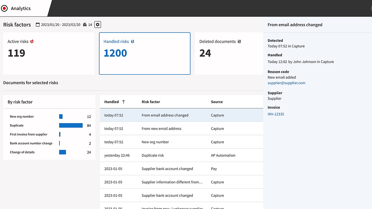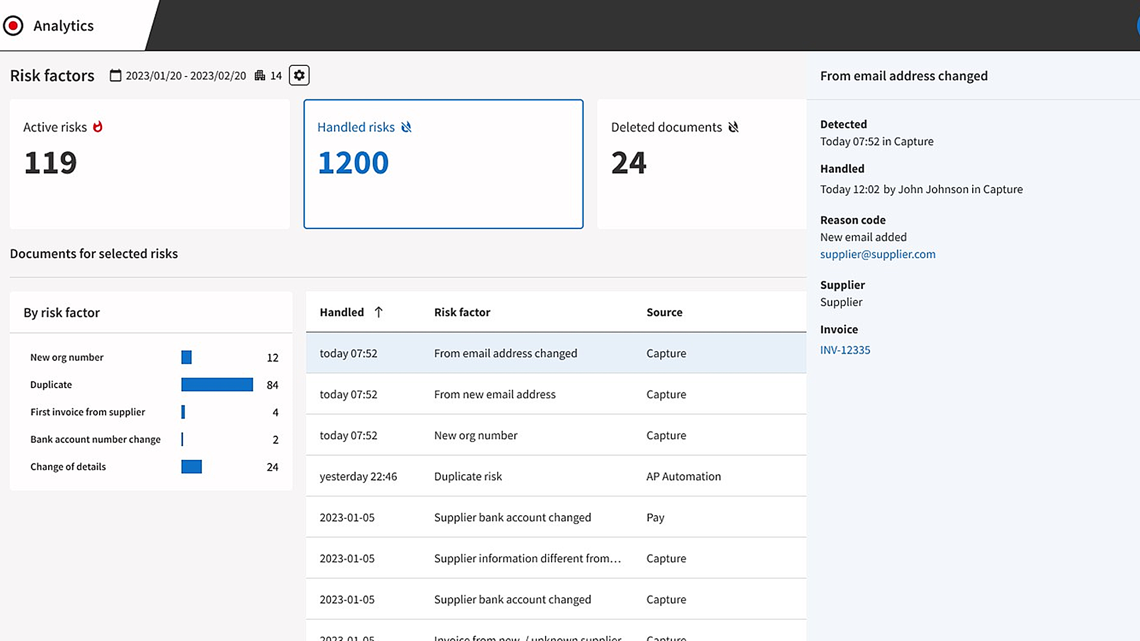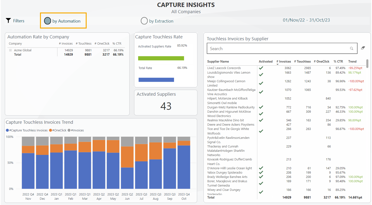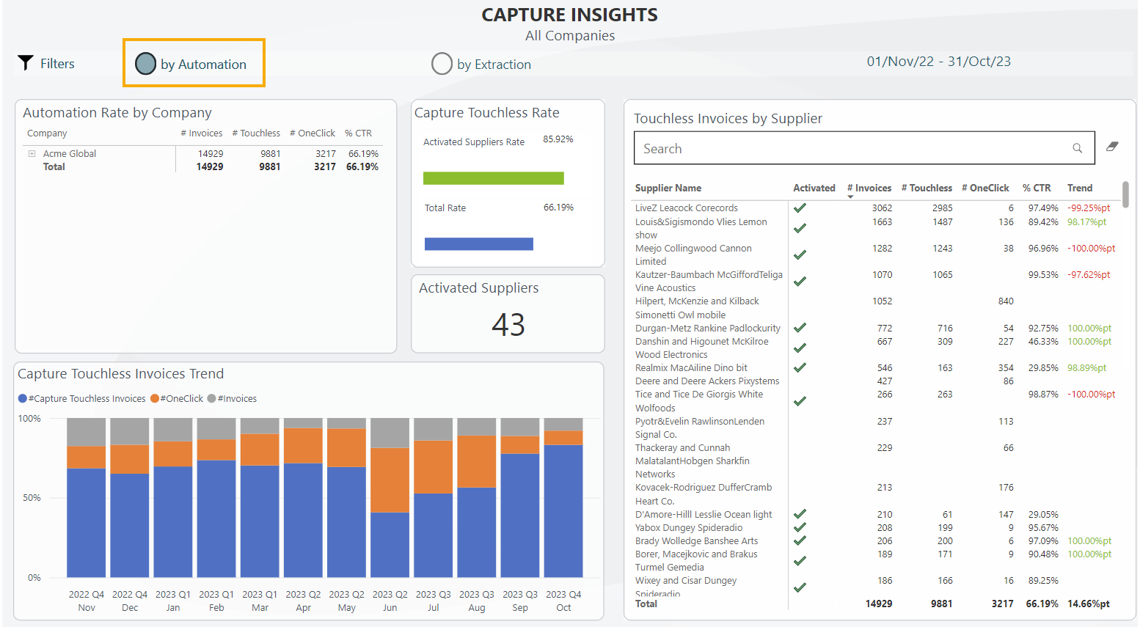How global e-invoicing mandates are creating new fraud vulnerabilities in AP
- Introduction
- The operational impact of global e‑invoicing requirements
- How real-time reporting creates compliance and fraud risks
- Where fraud thrives during regulatory transitions
- Is your AP team ready for what’s next?
- How poor vendor onboarding increases exposure
- Strengthening AP security with AI-powered automation
- Why Medius is the right partner for secure e-invoicing
Hear what's covered in this article:
Mandatory e-invoicing is reshaping how companies manage accounts payable. While these regulations are designed to improve tax oversight and reduce manual processes, they are also introducing new fraud risks. Without strong AP automation in place, rushed compliance efforts or incomplete vendor onboarding can increase the likelihood of payment errors and fraudulent activity.
This shift is particularly challenging for AP managers, IT leaders, and CFOs who are responsible for aligning operations with country-specific e-invoicing rules while maintaining control and minimizing fraud risk. As many finance leaders rethink their approach, the move toward AP automation to combat fraud is becoming a strategic response to both regulatory and operational pressures.
The operational impact of global e‑invoicing requirements
Governments across Europe, Latin America, and Asia are requiring businesses to submit electronic invoices using specific formats and real-time reporting systems. These e-invoicing mandates vary by country, with unique requirements for XML structure, tax codes, and validation timelines. While the goal is improved transparency, the process introduces substantial complexity into AP workflows.
Organizations must integrate their invoicing systems with government portals, apply country-specific rules, and ensure immediate submission and approval. Without automation, this environment increases the risk of errors and weakens internal visibility.
To handle these changes at scale, finance teams are adopting AP automation for e-invoicing. These platforms apply structured data logic, validate fields automatically, and route invoices based on compliance criteria, reducing the burden on internal teams.
How real-time reporting creates compliance and fraud risks
Real-time submission requirements force teams to process and submit invoices without delay. This reduces the time available to review data, confirm vendor identity, or investigate anomalies. If invoices are submitted without proper validation, businesses risk paying fraudulent claims or facing regulatory penalties.
Real-time demands also introduce interoperability challenges. Each government portal may require different protocols and connection points. Managing these requirements across multiple jurisdictions adds more pressure to AP teams, increasing the risk of missed steps or manual errors.
Organizations are managing these challenges with e-invoicing compliance tools that automatically apply local rules before submission. These tools reduce manual review, accelerate processing, and ensure invoice accuracy and consistency.
Where fraud thrives during regulatory transitions
Periods of regulatory change are often the most vulnerable for fraud. As AP teams focus on implementation, fraudsters exploit procedural gaps. They take advantage of shortened review windows, unfamiliar formats, and incomplete onboarding to submit lookalike invoices or manipulate supplier information.
Opportunistic fraud often increases during transition periods, when compliance attention is focused on configuration rather than control. Duplicate submissions, vendor impersonation, and altered payment information can easily go unnoticed when the primary focus is meeting new regulatory deadlines, making invoice fraud prevention a growing concern across AP teams.
To prevent these incidents, finance teams are turning to fraud detection for AP. These tools scan invoice behavior, monitor vendor activity, and detect deviations from historical norms, allowing AP teams to identify and isolate suspicious transactions before payment.
Global mandates are changing the game. Is your AP team ready for what’s next?
From Italy to India, e-invoicing regulations are evolving fast, and with them, new vulnerabilities are emerging. Fraudsters are exploiting gaps in compliance, data handling, and invoice validation.
The Global eInvoicing cheat sheet breaks down key country-by-country mandates and shows you how to stay compliant and protected.
How poor vendor onboarding increases exposure
Vendor data is the foundation of secure AP processing. When supplier records are missing tax IDs, bank details, or verification documents, invoice risk rises. This becomes even more critical under e-invoicing mandates, where compliance relies on correct and complete data at every step.
Incomplete onboarding is often caused by time pressure. During new mandate rollouts, AP teams are focused on submission logic and invoice formatting, leaving less time for manual supplier verification. These shortcuts create entry points for fraud.
To strengthen supplier validation, organizations are using compliance checks for vendors that enforce required fields and verify identity at onboarding. These tools ensure that only approved and verified vendors can submit invoices into the system, reducing the risk of fraudulent claims.
Strengthening AP security with AI‑powered automation
AI plays a critical role in securing invoice workflows against fraud while reinforcing compliance. Machine learning models in Medius monitor invoice data, supplier behavior, and approval patterns to detect anomalies that signal potential risk. These insights help finance teams respond before issues escalate.
Automated workflows apply validation checks instantly, confirming that tax codes, formats, and required fields meet regulatory standards from the start. This reduces reliance on manual reviews and lowers the chance of errors under deadline pressure.
Medius continues to invest in AI and intelligent automation that improves accuracy, expands visibility, and adapts with evolving regulatory needs. These innovations are shaped by insights from our ongoing AI work in finance and operations.
With these capabilities in place, AP teams gain speed, confidence, and control, while keeping compliance and fraud risk in check.
“Having the cross-company duplicate checking as soon as the invoice comes into [Medius] Capture gives my team the ability to review and stop these invoices prior to entering the workflow, eliminating unnecessary touches downstream.”
Senior Accounting Manager at a Fortune 500 Company
Why Medius is the right partner for secure e‑invoicing
Medius is purpose-built to help organizations navigate regulatory change while protecting their AP processes from fraud. Its platform supports global e-invoicing compliance by applying country-specific rules, automating tax validation, and structuring invoice data for fast and accurate submission.
With built-in fraud detection, real-time monitoring, and secure vendor onboarding, Medius delivers control where it matters most. Every step in the AP workflow is traceable, configurable, and designed to prevent errors and abuse. For finance leaders, this means more visibility and more confidence in every transaction.
Book a demo with Medius today to see how your team can reduce risk, improve control, and stay fully compliant in the face of global e-invoicing mandates.
